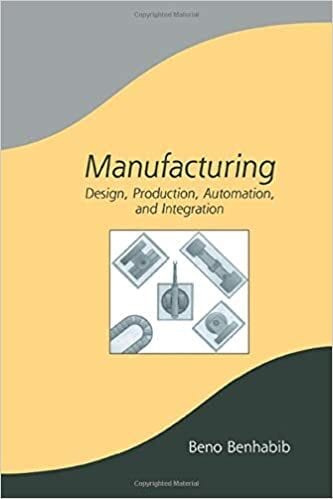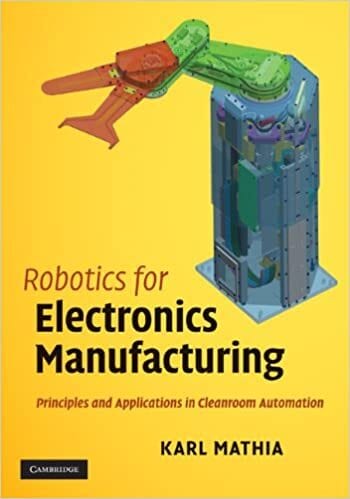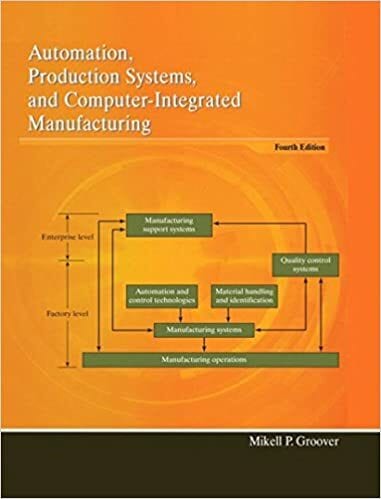If you like robots, you might be interested in a career in automation. Automation is the creation and application of technology to produce and deliver goods and services with minimal human involvement.
The goal is to improve the efficiency, reliability, and speed of tasks that were previously performed by humans. If you gain skills in automation, you will be able to work in sectors such as transport, manufacturing, utilities, defense, operations, facilities, and IT.
It is a very broad concept, so let’s get started covering all you need to know to begin learning through the best online automation courses you can find and other resources.
What Is Automation?
Tasks that are either repetitive or menial can often be replaced by machines via automation technology. It is used in virtually all sectors but is most common in areas that involve large production plants or labor forces.
One example is the use of robotic assembly lines and artificial intelligence at factories. Knowledge of virtual reality and artificial intelligence (AI) is in high demand in the field.
What Is Automation Used For?
Despite advances in automation, some manual intervention is always needed. A company must hire automation professionals for tasks such as the creation, application, and monitoring of new technology.
Below are some of the areas you may want to work in if you are interested in pursuing a career in automation.
- Manufacturing. All types of manufacturing, from food to pharmaceuticals, use automation.
- Facility operations. Aspects of monitoring a facility include environmental control, security services, and energy management.
- Transportation. This includes aspects of automation within supply chain management to move objects from one place to another.
- Utilities. Examples of utilities that can be automated include oil and gas companies, electric power and supply companies, and telecommunications enterprises.
Types of Automation
Without talented individuals to design, build, improve, and maintain these processes, there would be no automation. Let’s review the three basic types of automation: fixed, programmable, and flexible.
Fixed Automation
Fixed automation, or hard automation, involves the use of fixed purpose equipment to perform repetitive tasks such as those in an assembly line. Advantages of fixed automation are an improved production rate and low unit costs.
Programmable Automation
This type of automation involves the software development processes used by programmers. This type of automation involves the use of software to implement new systems and test mechanisms.
If automation software needs to be reprogrammed to perform better, then a software developer or engineer would step in to work on the relevant control systems.
Programmable automation is useful in instances where the hardware needs to be reprogrammed to perform a different set of tasks after one batch of items has been produced.
Flexible Automation
An extension of programmable automation, flexible automation allows for the production of different goods with no downtime or complicated procedures. It enables a higher production rate.
No complicated programming is needed, making this type of production advantageous to manufacturers who don’t need batch production.
Learning Automation

There are many courses available online and in-person to anyone interested in learning more about automation. Like any skill, it takes discipline and knowledge to reach an education level that will enable you to pursue a career.
Even once you have landed a job, you will likely still be learning new things as you work in this ever-developing industry.
How Long Does It Take to Learn Automation?
Due to the varying demand for each type of automation and the different skills required for each, there is no set time frame for learning these skills. However, we suggest you start with a beginners course so that you can set small goals as you work your way up to the advanced level.
This way, you can pick up skills little by little as you keep learning in this ever-changing industry.
How to Learn Automation From Scratch: A Step-by-Step Guide
There are no rules on how you should learn automation. It is a broad skill set that has many applications. However, there are a few basic steps you should take to get started in this field.
- Gain technical skills. Before you even start an automation course, you should know that those who have technical skills will find it easier to master. So, gaining technical skills should be your priority. Keep in mind the differences between technical skills and soft skills.
- Programming skills. Consider the skills you possess and those that you need to work on to succeed in this arena, namely programming and software development skills. If you are new to technology, remember that there are several programming languages you can learn. Choose from among Java, C/C++, SQL, CSS, HTML, or Python, and remember that the more of these you learn, the better.
- Enroll in courses. Don’t just rely on YouTube videos and online research. You should also take advantage of the many free and paid courses that the Internet has to offer. Start with a basic course and make your way up to more advanced processes.
- Get a certificate. As exciting as the process of learning about robots may be, getting certified will put you one step closer to making your studies into a career. Employers and recruiters will be much more likely to hire you if they see you have a qualification under your belt.
The Best Automation Courses, Training, and Certifications

Learning automation can open up a world of opportunities in many different sectors. It’s also a highly creative field in which you can innovate mechanisms with the knowledge you gain from studying. To get started, check out some of the machine learning and artificial intelligence courses and training below.
Best In-Person Automation Classes
Below are some options for in-class automation learning if that’s your preferred method of education.
Introduction to Test Automation
- Provider: TSG Training
- Instruction method: Classroom presentations, instructor-led discussions
- Length: December 11, 2020 to June 8, 2021
- Prerequisites: None
- Price: $400
If you would like to learn more about test automation tools and techniques that will come in handy on your next project, this course will leave you fully prepared. It covers everything you need to know about test automation, including all the frameworks and tools. Practice sessions and tests are included in the course.
Certificate Course In Automation and Universal Robotics
- Provider: Bots Automation Experts
- Instruction method: In-person, module-based training
- Length: Varies
- Prerequisites: None
- Price: $600
Learn how to program and test robots, or cobots as they are referred to in this course. Bots Automation offers collaborative robot training classes so you can learn to program and service cobots. These hands-on classes enable users to quickly gain experience in creating and deploying robotic applications.
Best Online Automation Courses
Below are some online class resources you can tap into, including a mixture of both free and paid options.
Introduction to Programming with Python – Revised
- Provider: Alison
- Instruction Method: Online course/certification
- Length: 3 – 4 hours
- Prerequisites: None
- Fee: Free
Alison teaches this online course on the popular programming language Python. A couple of hours a day is all you will need to gain a basic understanding and start coding yourself. With Python, you’ll be able to build mobile automation applications and computer automation software as you work your way up to larger projects and build your portfolio.
Introduction to Bots – Revised
- Provider: Alison
- Instruction Method: Online course/certification
- Length: 3 to 4 hours
- Prerequisites: None
- Fee: Free
As a free online Introduction to Bots course, you have nothing to lose and exceptional knowledge to gain. This free course teaches you how you can use bots to enhance your websites and apps, and why they are important in automating online messaging and conversations.
Bots are autonomous programs and can be used anywhere, online, or in real-life working environments. On a network or the internet, they interact with websites, systems, users, and more and are used for a variety of purposes from testing to making corrections to your web pages. Try out this free course and see what it’s all about.

"Career Karma entered my life when I needed it most and quickly helped me match with a bootcamp. Two months after graduating, I found my dream job that aligned with my values and goals in life!"
Venus, Software Engineer at Rockbot
Machine Learning
- Provider: Coursera
- Instruction Method: Instructor-led
- Length: 11 courses
- Prerequisites: None
- Fee: Free
This Coursera course taught by a Stanford University professor covers the use of machine learning in everything from self-driving cars to Web searches and speech recognition. In this free online class, you will learn about the most effective machine learning techniques, and gain experience by implementing your knowledge.
Books About Automation
From manufacturing automation to building and testing robotics, you can check out these reading options to learn more. Grab one of these books to boost your learning and get a better all-round understanding of the complex subject of automation.
Manufacturing: Design, Production, Automation, and Integration: 63 (Manufacturing Engineering and Materials Processing) Beno Benhabib

Start from the basics and work your way up to deploying your own production automation ideas. This text covers everything about design, prototyping, and fabrication of engineering products and automatic controls, including how electronic devices can be used in the production and manufacturing industries.
It also takes a holistic look at management strategies, design methodologies, traditional production techniques, and assembly applications.
Robotics for Electronics Manufacturing: Principles and Applications in Cleanroom Automation. Karl Mathia

With this practical guide, you will learn about the design, testing, and applications of cleanroom robotics and automation. It covers the latest applications and industry standards, as well as real-world examples and tips for reducing design time and cost.
Automation, Production Systems, and Computer-Integrated Manufacturing Mikkel P. Groover

If you’re at the graduate level and looking to specialize in one area of automation, this book will help you out. It covers both the technical and engineering aspects of automated production systems, as well as the major technologies currently being used in the manufacturing industry.
Should You Study Automation?
Automation is a relatively new concept in some fields. But it is growing and has become an important part of many major corporations. Why wouldn’t you want to be a part of it?
As the use of robots and AI continues to rise, knowing how to build systems that work with them will put you at a huge advantage in your future career. If you already work in a field or at a company that you think will benefit from automation, you should consider taking some training in this area.
About us: Career Karma is a platform designed to help job seekers find, research, and connect with job training programs to advance their careers. Learn about the CK publication.



